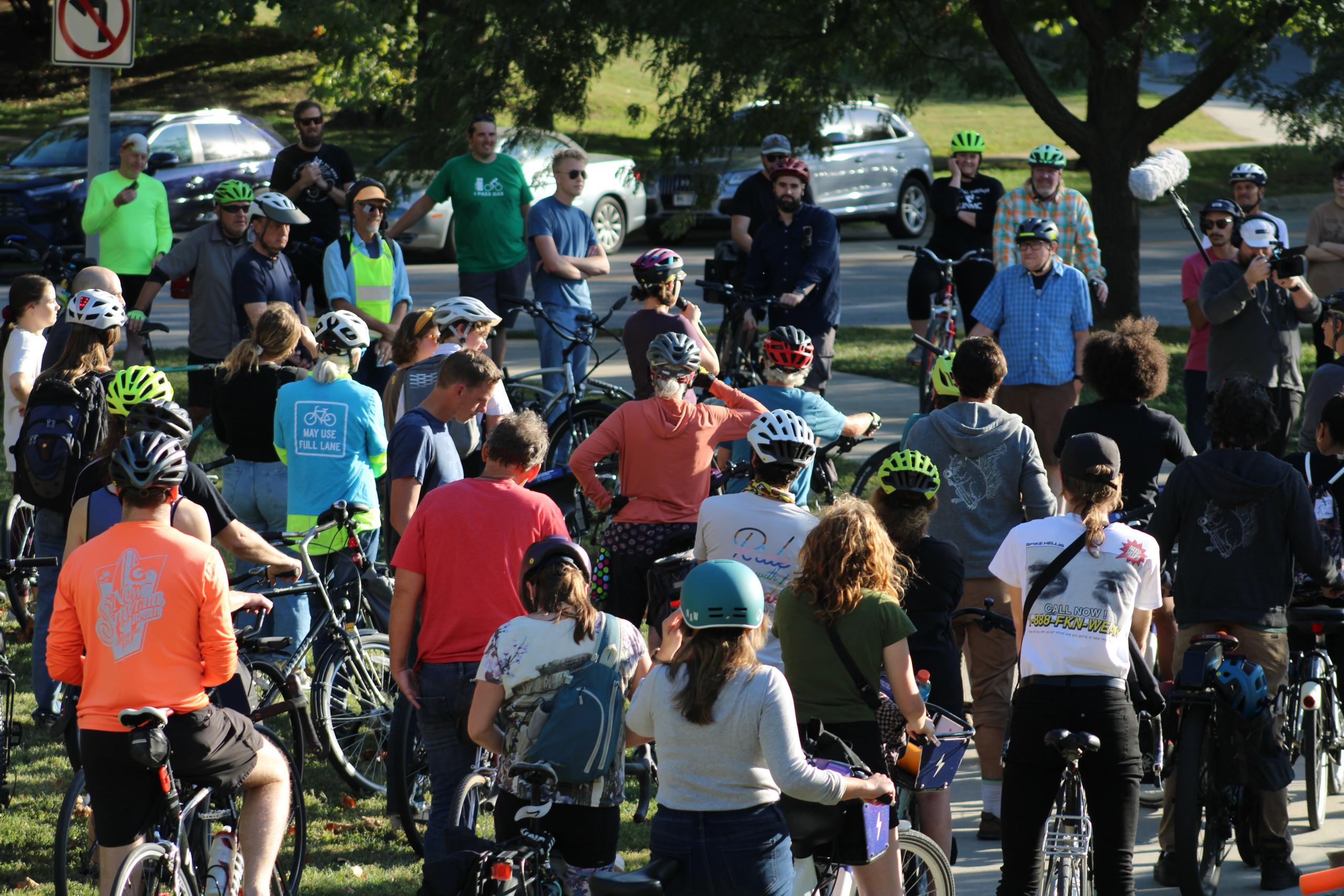
This month, June, 2019, our Coffee Chat guest will be Abbie Kretz from Heartland Workers Center. Abbie is the lead organizer for the organization, and we’ll be discussing how transportation and employment are inseparable. Join us Friday, June 21st at the Scooters on 30th and Ames at 8 a.m. From the Heartland Workers Center website:
Abbie grew up in Schuyler, Nebraska. She holds Bachelor of Arts degrees in philosophy and religion, and Spanish, and a Master of Arts in sociology. Previously, Abbie was a volunteer with the Good Shepherd Volunteers in Peru. While in Peru, she coached soccer and started a reading group at a home for teen girls, worked at a women’s center, and coached boys soccer in one of Lima’s shantytowns. In her free time, Abbie enjoys running, teaching and doing yoga, reading about world history, and traveling.
https://www.heartlandworkerscenter.org/staff
We asked her five questions:
1. What is your preferred mode of transportation?
I guess my mode of transportation is my car; however, I wish I used more public transportation. When I travel to see friends, I always use trains, subways, or buses to get around because that’s the culture. I feel like it provides increased opportunities to engage with people that sitting is a car does not.
2. What, in your opinion, is the greatest challenge to multi-modal transportation in Omaha?
Like I said above, it’s the culture of public transportation. Until we can get people out of their cars and feel like they know, understand, and can rely on other modes to get around. Personally, I think the use of public transportation is perceived to be used by people who don’t have or cannot afford cars. So we really need to change the mindset of people (including myself) that the public transportation system is safe, reliable, and functional for all.
Secondly, we also need to ensure that the infrastructure is set up this way and can actually get people to where they need to go – to jobs, entertainment, etc. – whenever they need it – whether it be through public transportation or alternative modes (i.e. bike trails and lanes).
3. What, in your opinion, the the greatest multi-modal success in Omaha?
I would say the fact that there is now a multi-sector approach looking at the transportation issues – that goes beyond just fixing potholes – and is working to create a vision for a better transportation system.
4. How does transportation influence the mission and capabilities of the Heartland Workers’ Center?
In 2015, we conducted a community assessment in South Omaha. A question we asked stated, “do you use public transportation?”, and the majority of respondents said no – because they use their cars. Even more recently, this is an issue we continue to confront with leaders, who state that they cannot get around in Bellevue easily or that youth cannot be engaged with programs after school because they won’t have a way home if they stay. We’ve also seen how it impacts leaders ability to be involved with our efforts – their cars need to be repaired, they cannot find a ride, or it can be too costly to drive to South Omaha (if this is where meetings are). It definitely impacts one’s ability to be more engaged in the community.
5. If you could magically change one thing about the transportation systems in Omaha, without limit to budget or feasibility, what would it be?
I love magic wand questions. We would create a system (buses, trams, bikes, walking trails, etc.) to where people no longer feel dependent upon their cars in the metro area because the culture is changing and making these other systems more accessible and easy to use.

